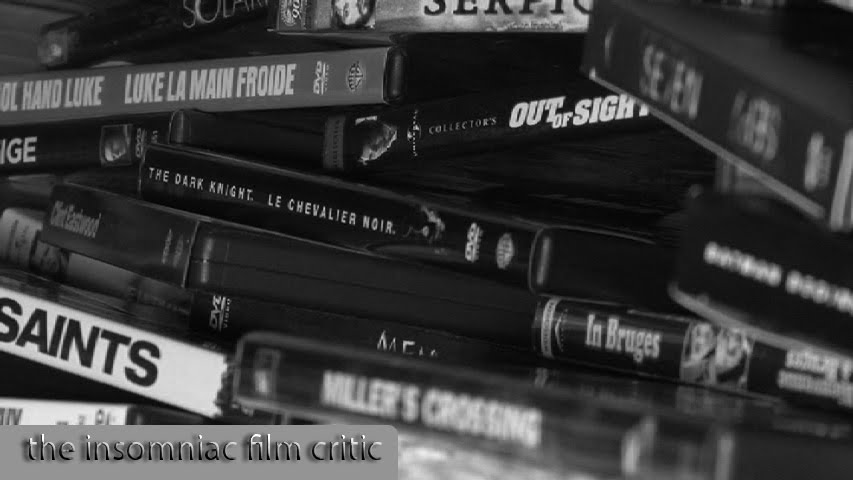I originally wrote this months ago, and in the time that passed since then have realized that I did not see Taxi Driver and Transformers on the same day (I saw Taxi Driver and the Hangover). Everything I talk about here did happen, it's just that the time line has been rearranged a little.
The answer to the question is simple: they generally don’t watch movies with other people, and therefore don’t take an audience’s reaction to the movie into account. Within Roger Ebert’s scathing review of Transformers: Revenge of the Fallen, he basically said that anybody who likes the movie has poor taste and Ebert hopes that these Transformers fans’ tastes elevate.
Well, fuck you Ebert. I loved Transformers, and I can also appreciate “serious films” as well. I recently saw Taxi Driver at the art-house theatre in town, and then hours later saw Transformers: Revenge of the Fallen at another theatre. I am not going to try to argue that Transformers is a better movie than Taxi Driver (“Movies better than Taxi Driver” isn’t a long list though), but it is damn sure entertaining. Each of these two movies succeeds in achieving their goals: Taxi Driver is a great movie about Travis Bickle’s isolation and frustration with society, and Transformers is, well, awesome.
When I saw Taxi Driver recently, the crowd was almost completely silent, and walking out of the theatre, I didn’t hear a word – likely because Taxi Driver isn’t exactly a pleasant piece of cinema. The Transformers theatre, however, was completely different. During the movie there were laughs, slight cheers, and even moments where brief applause could be heard. I’m not saying it was like a party in the theatre, but it was a notably different experience. Walking out, you could hear much of the crowd’s approval of the movie, and I have noticed similar things each of the three times I saw it in theatres. I am not saying everybody liked it, because I really doubt that is the case. I am merely arguing that Taxi Driver and Transformers offer completely different film going experiences, and that neither one is necessarily better than the other.
The filmmakers behind each film have very different goals – Martin Scorsese and his crew likely set out to make a serious film to be taken as art, while Michael Bay’s crew set out to make a calculated piece of entertainment. Movies like Transformers need an action scene every 25 minutes or so, a certain amount of laughs per scene, and they almost always end happily. To ensure the audience gets the maximum enjoyment possible from the movie, there are generally lots of test screenings employed for these types of movies.
Bay did not start this democratic method of filmmaking, but he and other action directors happily participate in it. Bay has said that he doesn’t make movies for critics, but instead aims to please Middle America. And honestly, I don’t see why film critics seem so angered by the fact that people sometimes want to engage in movie going exclusively to have fun. While some movies are more of an isolated experience, like Taxi Driver, movies like Transformers are perfect to see with a group of people.
Bay orchestrates his movies so that he can get reactions from his audience, and other directors who try to make crowd pleasers undoubtedly do the same. These filmmakers want to hear laughs, screams, applause, cheers, and most of all, they want their audience to leave smiling. They want a trip to the theatre to be more than just seeing a movie – they want it to be an “experience.”
I’m alright with this. Most of my favourite memories from being in a movie theatre come not from the movie itself, but the audience. I will never forget laughing along with the rest of the audience at the ludicrous writing in Lady in the Water, the people who cheered “ROCK-Y! ROCK-Y! ROCK-Y!” during the climactic fight in Rocky Balboa, and seeing a full theatre collectively jump during 1408. I will probably never watch any of these movies again, for they are far from good movies (okay, Rocky’s awesome), but it’s unlikely I’ll forget these experiences.
To be fair to Ebert and seemingly every other movie critic, I would happily trade all of these experiences to have legitimately great movies such as Synecdoche, New York be the commercial hits that the masses flock to see. But what critics seem to disregard is that Hollywood takes any movie that is a huge commercial hit and attempts to replicate it, and in doing so often bastardizes everything that was so great about it originally. I think that I would rather keep things the way they are and just deal with the fact that there are movies made to provide people with a fun couple of hours, and there are films that are made to be seen as art.
Not everybody likes a movie like Taxi Driver, just like some people aren’t fond of movies like Transformers. But just because some would rather watch Transformers than Taxi Driver does not make those people stupid. What makes movie critics stupid, however, is that they often expect their word to be taken as the only correct way to feel about a movie.
For those wondering, here is the quote that set off this rant: "Those who think "Transformers" is a great or even a good film are, may I tactfully suggest, not sufficiently evolved. Film by film, I hope they climb a personal ladder into the realm of better films, until their standards improve."
Sunday, October 18, 2009
Subscribe to:
Post Comments (Atom)





No comments:
Post a Comment